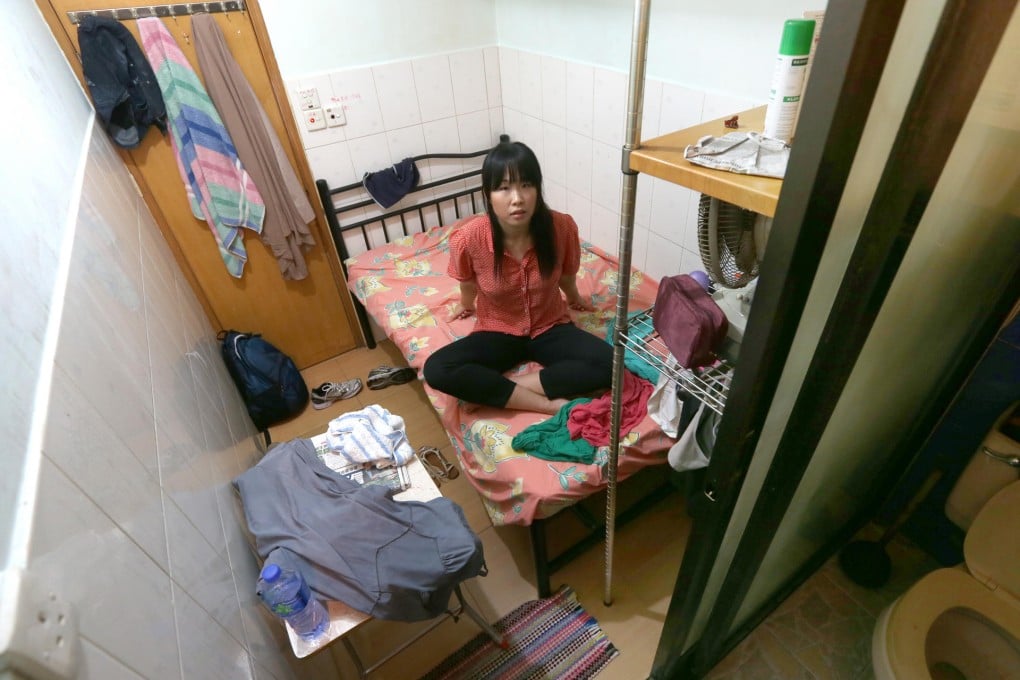Living in a squalid subdivided flat is a miserable experience for SCMP reporter
We've all heard about the miserable lives of people in subdivided flats. But Joanna Chiu decided to go further. She realised she could only really understand the problem by moving in herself

"Do you have anything cheaper in Sham Shui Po?" The landlord is showing me a subdivided unit in Prince Edward, with its own window and bathroom. At HK$3,200 a month, though, it's too expensive for many low-income renters.
"I do," he says. "But you wouldn't be able to live in a place like that."
I tell him I just want a place to sleep for a month and don't care how small it is. A short minibus ride later, we're climbing the steep, grimy staircase to my new home.
I'd been thinking about what it would be like to live in a subdivided flat since I interviewed 60-year-old Lee Yu-ching, who was living in a cubicle home in Sham Shui Po.
As a recent university graduate, I thought I knew how to "rough it". I lived in an old man's basement for HK$2,300 a month - walking his dog in exchange for cheap rent, while fending off wolf spiders with a broomstick. Last year, working in New York, I shared a tiny studio with a roommate - and two dozen mice.
But I couldn't imagine living in a place like Lee's.
He had been in the cubicle for a year, using most of his social security cheque on his HK$1,200 a month rent, after failing to find work. Thin wooden boards divided his tiny room from his neighbours. Dusty, broken appliances surrounded his bed, which took up most of the room, and he hung his clothes on a piece of string fastened to the walls.